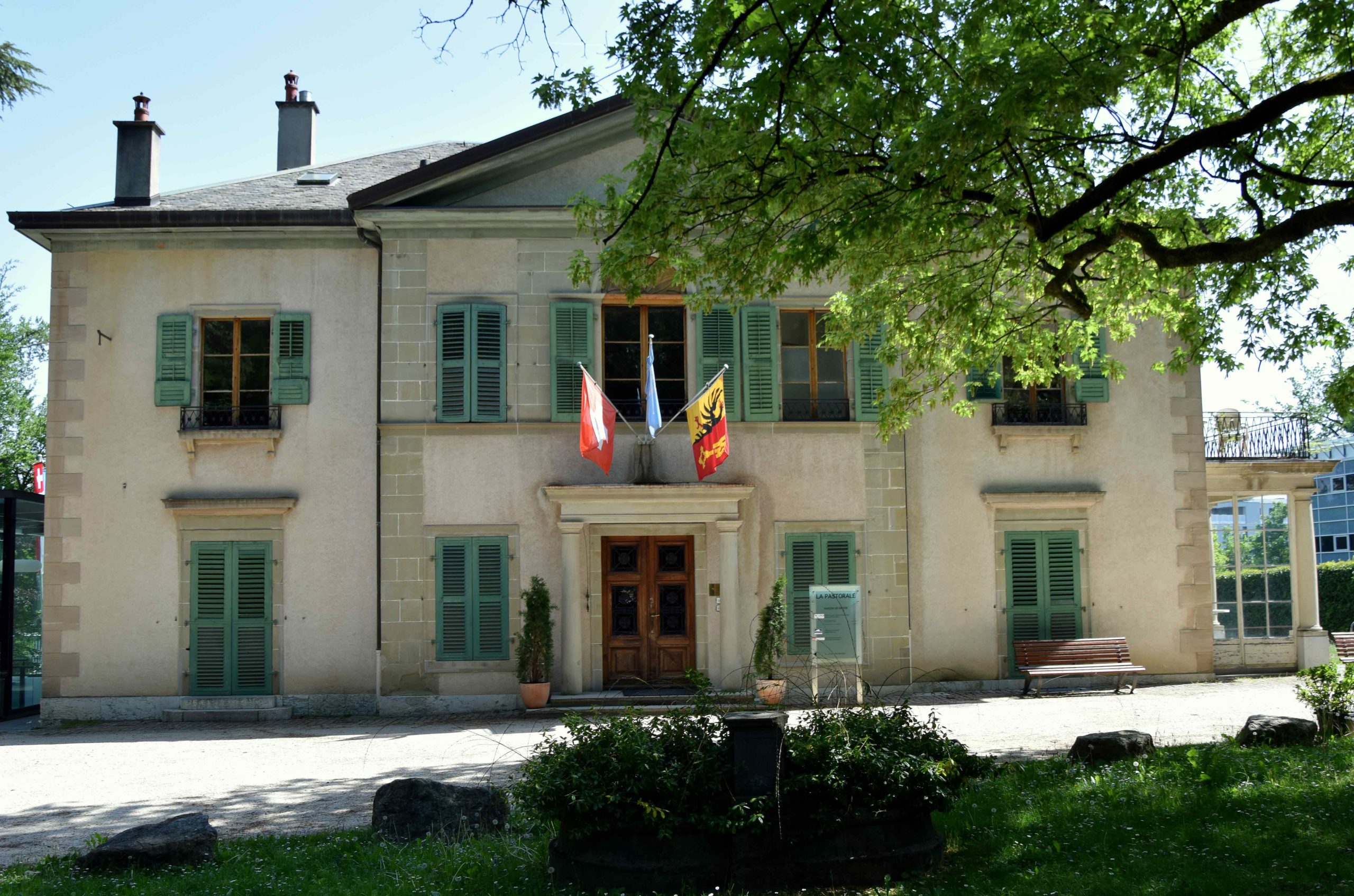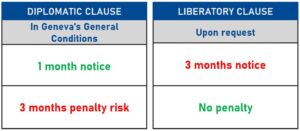Frequently Asked Questions (FAQ)
- Home
- FAQ
Yes, children who do not speak French can enrol in a public school.
hildren between four and six years of age will be placed in a regular class and given individual support if necessary. Children over six years of age will spend 50 per cent of their time in a regular class and 50 per cent in specialist French-language classes. They will spend a minimum of 12 months taking French classes.
Students with special educational needs or disabilities are enrolled in the same way as other students.
It is important to use the Cultural Kiosk related to your organisation, as our ticketing platforms are separate for the two entities.
As an association, CAGI cannot sponsor events. However, other types of collaboration may be possible. Please contact CAGI by email at communication.cagi@etat.ge.ch
The catalogue of events proposed by the CAGI is not exhaustive and the kiosk does not have access to all ticketing platforms. All our negotiated offers are available on the Cultural Kiosk page. In addition, the CAGI is an official reseller of tickets that do not benefit from preferential rates. The prices charged are those indicated on the ticketing platform of the provider concerned.
Under the Compulsory Education Act, children who have reached the age of 4 on 31 July must attend school.
Unfortunately, it is not possible for you to register. The Conversation Exchange Programme take place in Geneva and are intended solely for people living in Geneva or in the Lake Geneva region.
Please complete the online form.
Once we receive your registration, we will contact you as soon as possible to match you with a suitable conversation partner. Finding a suitable person can sometimes take three to four weeks, depending on the language combination involved.
The Conversation Exchange Programme is based on conversation only, an intermediate level is required to facilitate language exchanges between participants. We advise you to contact one of the many language schools in Geneva:
Sometimes it is difficult to find a suitable person. In such cases, we suggest you try some of the numerous language schools in Geneva.
- https://www.ifage.ch/formation/langues/
- https://www.ecole-club.ch/Offres/Langues
- https://learning.unog.ch/fr
Otherwise, don’t hesitate to contact us by phone 022 546 14 00 or by email at welcome.cagi@etat.ge.ch.
Yes, you can bring a friend on the Welcome Programme’s excursions and outings. Simply include their first and last name when you register.
As soon as you know the termination date. First, advertise the housing offer on the housing platform of the International Geneva Welcome Centre (CAGI). You should also ask the “régie” (real estate agency) to advertise the offer on its website, as doing so is also in its interest. However, you will have to organize any showings of the place. To increase your chances, you can place an ad on a specialized website. And be sure to share the information with colleagues, friends and neighbours – word of mouth can be very effective.
You can send your partnership request by email to the CAGI Communication Service at communication.cagi@etat.ge.ch. After analyzing the request, the team will get back in touch to define the outlines of a potential partnership and the offer at a preferential rate that will be proposed to Kiosk customers. Find out more about the current kiosk partners.
Complete the online form for each offer listed in the Cultural Agenda by filling in the required fields. A payment link will be sent to you by e-mail/sms to proceed with the online payment and the sending of the tickets. The purchase will be made by card only. You can also contact the concerned kiosks by email or phone. For UNO Geneva at info@kiosqueonu.ch and 022 917 11 11. For CERN at info@kiosquecern.ch and 022 766 94 76
Upon confirmation of the accommodation support by CAGI, the delegate will be informed of the amount of the financial contribution to be paid. The delegate undertakes to pay this contribution to CAGI before leaving Geneva:
- In cash (Swiss francs) or by credit card at CAGI’s office according to our opening hours,
- By credit card online (secured payment link sent upon request).
No payment should be made to the hotel.
All requests must be sent to the CAGI Communication Department by email to communication.cagi@etat.ge.ch, which will analyze the content. The Department reserves the right to only accept requests that are related to its field of activity. The CAGI will give priority to events for which it is a partner or which are related to the CAGI’s mission to facilitate the integration of internationals in Geneva or which concern local cultural life.
Registration is possible on the homepage of the Cultural Kiosk. The proposed offers are exclusively intended for employees of the International Geneva with access to the UN Geneva and CERN.
do I go about finding housing? Sign up with the housing platform of the International Geneva Welcome Centre (CAGI) to receive housing offers that you would not necessarily find elsewhere and also to receive offers from the portal: www.immobilier.ch. Request email notifications from the website www.comparis.ch for offers posted on most real estate platforms. Word of mouth also works! Your acquaintances can be a good source of information.
We invite you to consult the following page, which details the conditions to access CAGI’s support.
We invite you to consult the dedicated page: “Creating a foundation”.
If the association you want to set up is a legal entity under Swiss law, it will have to meet the relevant criteria listed on our website. We recommend that you consult the following pages:
Individual requests are to be made online via the “Visiting Delegates Application” accessible from a web browser. The Android application can also be downloaded on the Play Store.
The delegate must create a profile in order to apply for support.
He/she can submit and follow up his/her requests for accommodation support via his/her personal account. The delegate may share the required documents and consult his/her booking confirmation.
For more information, please refer to the Conditions of Allocation and General Booking Conditions.
Group requests must be centralised by a coordinator who is the sole interlocutor with CAGI during the whole process.
Applications are to be made online via the “Visiting Delegates Application” accessible from a web browser. The group coordinator must create a user account. He/she can then invite people to join the group and is able to follow and coordinate the requests of the whole delegation.
For more information, please refer to the Conditions of Allocation and General Booking Conditions.
Regardless of whether or not a visa is required, third-country nationals (non-EU/EFTA) must have travel documents that meet the following requirements (SEM, point 3) for a stay of no more than 90 days per 180-day period (short-term stay) :
- be valid for at least three months beyond the intended date of exit from the Schengen area,
- have been issued less than ten years ago (the date of issue concerns only the entry into the Schengen area).
You can ask the lessor if they will accept a “caution” (a type of rent guarantee not requiring a deposit). Be aware that most companies offering “caution”-type guarantees will not work with you if you have a “carte de légitimation”.
Yes, you may decline the offer when you get the call that your application has been accepted. That way, you will avoid any fees.
The kiosk is only available to people with access to UN Geneva and CERN (access badge or accreditation).
The International Geneva Welcome Centre (CAGI) is not a language school and does not offer courses.
The aim of the Conversation Exchange Programme (BEL) is to bring together 2 partners wishing to improve a foreign language orally in exchange for their own. Each participant must have an intermediate level to be able to converse with the person they are matched with. The Programme does not accept beginners or children.
The Programme is free of charge and is intended to complement, rather than replace, school-based courses.
The registration form must be completed online.
“Crèches” and nursery schools provide care for children between the ages of 16 weeks and 4 years. regular full- or part-time care are possible
If you live in the City of Geneva, you should register with the Bureau d’information petite enfance (Early Years Information Office), which is the only office authorized to handle registration for childcare facilities subsidized by the City of Geneva. In the City of Geneva, childcare places are allocated using the same criteria for everyone. The waiting list is very long. It is advisable to try various options such as contacting a network of approved childminders (list available from the Bureau d’information petite enfance). The Fondation 022 famille provide a list of various facilities.
If you live outside the City of Geneva or in the Canton of Vaud, you should contact the town hall of your commune directly.
It is essential that you renew (reactivate) the registration every 6 months and provide the documents concerning your professional situation. Yes, you must renew (reactivate) your registration. If you do not, your file will be cancelled and you will have to register again and wait even longer.
If you live outside the City of Geneva or in the Canton of Vaud, you should contact the town hall of your commune directly.
Yes. If you move to the Canton of Geneva during the school year, you must enrol your child in a school within three days of your move using the procedure for children living in Geneva.
If your child lives outside the Canton of Geneva and you wish to enrol them in a Geneva public school, you must check that they meet the enrolment conditions and then follow the enrolment procedure for children living outside the Canton.
In the Canton of Vaud
Articles 34 and 46 of the Constitution of Vaud set out the educational rights and duties relevant to all children residing in the Canton. As a general rule, children who arrive during the school year or who transfer from a private school, home schooling, a special education school or a school outside the Canton are placed in a class on the basis of their age.
Enrolment in a public school is based on the catchment area in which the parents’ place of residence is located. The procedure is different for primary and secondary schools: Enrolment at the primary level (grades 1P to 8P), Enrolment at the secondary level (grades 9S to 11S).
No, there is no registration fee. The cost of all our events and conferences is covered by the International Geneva Welcome Centre (CAGI).
The beneficiaries are : holders of a Swiss legitimation card (issued by the FDFA), employees of NGOs, multinationals, doctoral students or professors at the HUG, UNIGE and HES-SO.
You can find the registration form on the web page of the Welcome Programme.
The “diplomatic clause” is (in principle) part of the general conditions applicable in Canton of Geneva. It involves paying an indemnity for early termination of the lease of up to 3 months’ rent after the keys are returned to the lessor. The inclusion of a “liberatory clause”, which must be requested before the lease is signed, allows the lessee to terminate their lease without penalty as from the second year, so long as a three-month notice period is observed (the language of the clause and the specific terms and conditions may vary).
“Standard” leases: these have an initial term of one year and are renewable on a yearly basis thereafter, unless notice is given at least three months before the (annual) expiry date.
Multi-year leases: these often provide for a three-year term (never less); the rent for the initial period of the lease is fixed in advance. The rules for renewal and termination are usually the same as for standard, one-year leases.
Indexed leases: these have a term of at least five years, and the rent may be adjusted in accordance with the Swiss Consumer Price Index (ISPC) once a year. After an initial term of at least five years, such leases may be renewed for another five years every five years, or for one further year on a yearly basis (depending on the régie or real estate agency), unless notice is given at least three months before the (yearly or five-yearly) expiry date.
Fixed-term lease: often for a period of one year, but can be longer. There is no need to formally terminate the lease on the expiry date, as the end date is known from the start. It is possible to request an extension; however, that request may or may not be accepted by the lessor
Reminder: regardless of the type of lease, it is always possible to terminate a lease early by presenting a solvent buyer tenant; more information.
Your application must include the following documents:
1. the agency’s application form, 2. a copy of your I.D., 3. a copy of your permanent residence permit (“C” permit) or carte de légitimation, 4. a statement certifying your salary or a copy of your last three monthly payslips, and a statement (“attestation de non poursuite”) issued by the Debt Collection and Bankruptcy Office (Office des poursuites et faillites).
Ideally, as soon as you know the desired termination date, but at least three or four business days before the 15th or end of the month preceding the termination notice date.
The NGO database of the International Geneva Welcome Centre (CAGI) is an internal tool that is not accessible to the public.
The International Geneva website lists the main Geneva-based international NGOs (i.e. those that employ staff and can prove official status or collaboration with an intergovernmental organization). The list is for informational purposes and does not grant any special status.
NGOs incorporated in the form of a foundation, as well as associations that have chosen to register with the Register of commerce, can be accessed via the Register of commerce search engine.
CAGI can provide support to :
- A representative of a civil society organisation from a developing country,
- A representative of a government of a Least Developed Country (LDC),
- A representative of a government of a Small Island Developing State (SIDS),
- A representative of a subnational government (city/region) from a developing country,
- A representative of an organisation for the defence of minorities,
- A representative of an organisation of indigenous peoples’,
- A refugee
- Countries eligible to receive official development assistance (ODA). LDC: Least Developed Country.
- SIDS: Small Island Developing State according UN DESA list.
- Person who has been granted a refugee status by the host country.
Founded by the Swiss Confederation and the Republic and Canton of Geneva, the International Geneva Welcome Centre is the single entry point for the support and integration of employees of International Geneva and their families, NGOs and visiting delegates.




